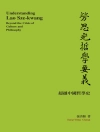Second Treatise of Government John Locke – Two Treatises of Government (or Two Treatises of Government: In the Former, The False Principles, and Foundation of Sir Robert Filmer, and His Followers, Are Detected and Overthrown. The Latter Is an Essay Concerning The True Original, Extent, and End of Civil Government) is a work of political philosophy published anonymously in 1689 by John Locke. The First Treatise attacks patriarchalism in the form of sentence-by-sentence refutation of Robert Filmer’s Patriarcha, while the Second Treatise outlines Locke’s ideas for a more civilized society based on natural rights and contract theory.
عن المؤلف
John Locke was an English philosopher. Locke is considered the first of the British Empiricists, but is equally important to social contract theory. His ideas had enormous influence on the development of epistemology and political philosophy, and he is widely regarded as one of the most influential Enlightenment thinkers and contributors to liberal theory. His writings influenced Voltaire and Rousseau, many Scottish Enlightenment thinkers, as well as the American revolutionaries. This influence is reflected in the American Declaration of Independence.Locke’s theory of mind is often cited as the origin for modern conceptions of identity and ‘the self’, figuring prominently in the later works of philosophers such as David Hume, Jean-Jacques Rousseau and Immanuel Kant. Locke was the first Western philosopher to define the self through a continuity of ‘consciousness.’ He also postulated that the mind was a ‘blank slate’ or ‘tabula rasa’; that is, contrary to Cartesian or Christian philosophy, Locke maintained that people are born without innate ideas.












